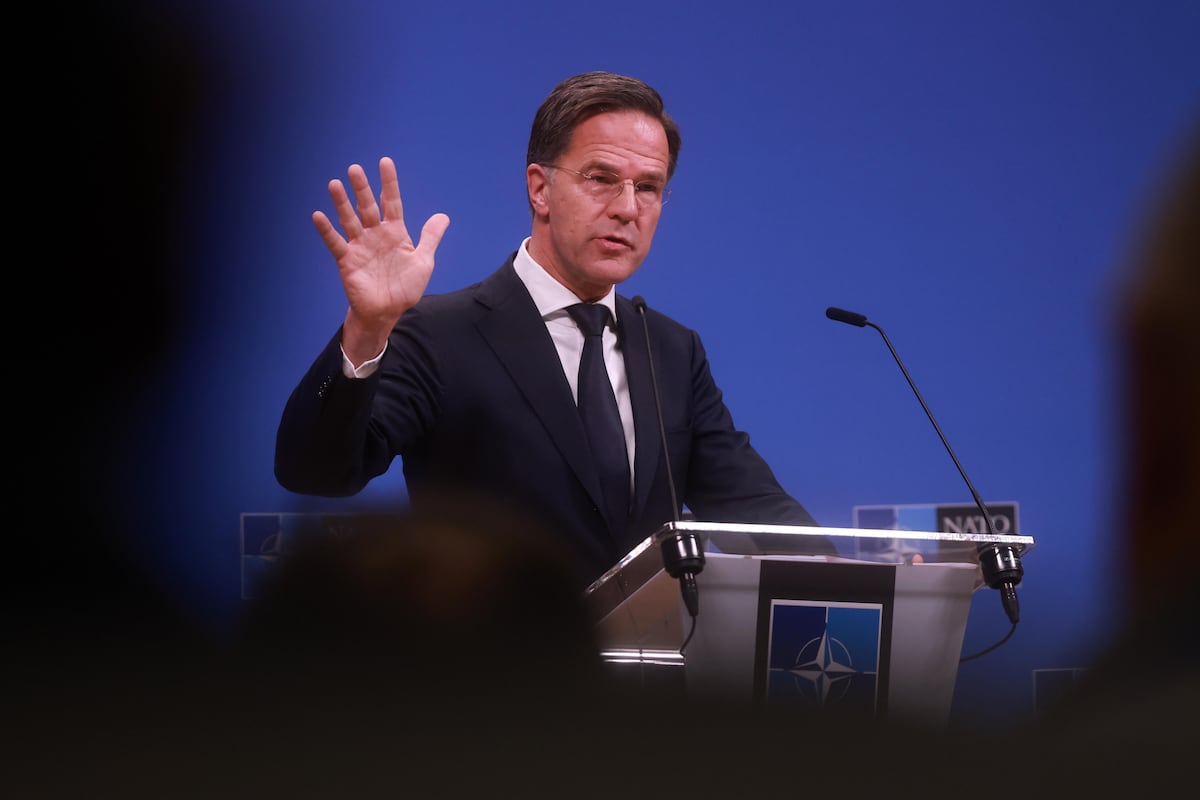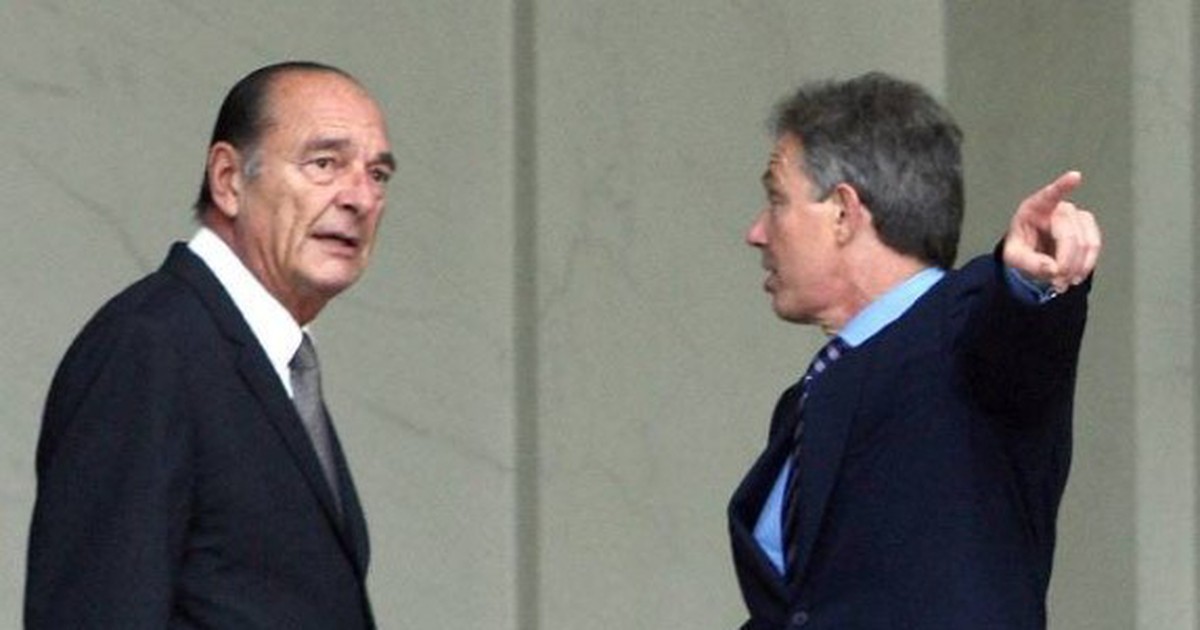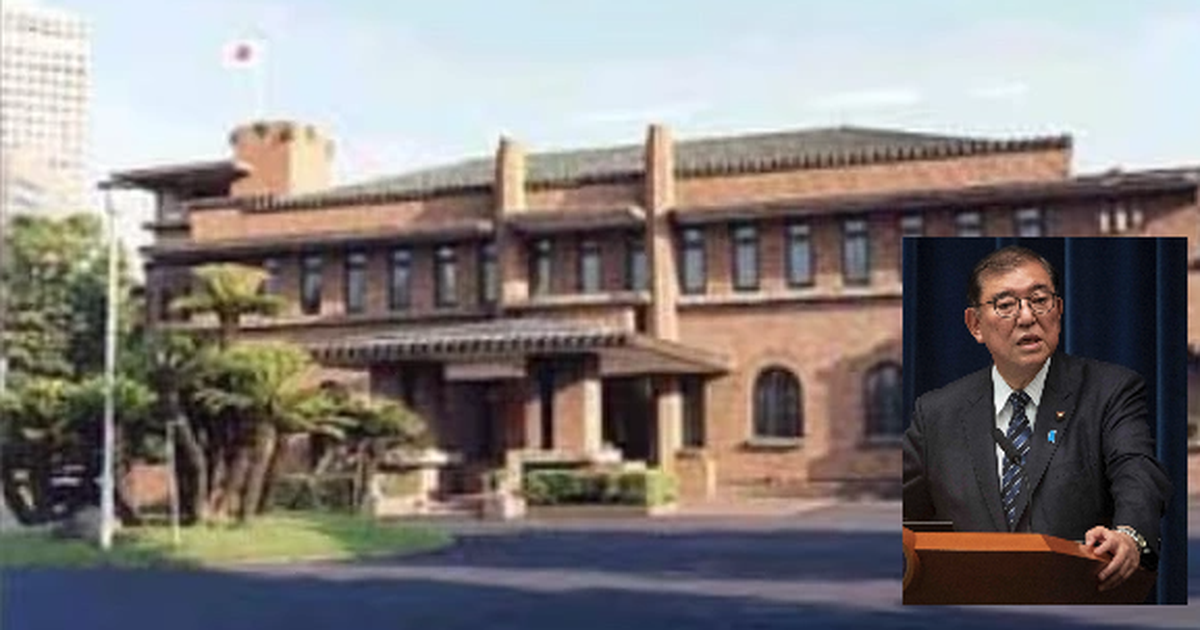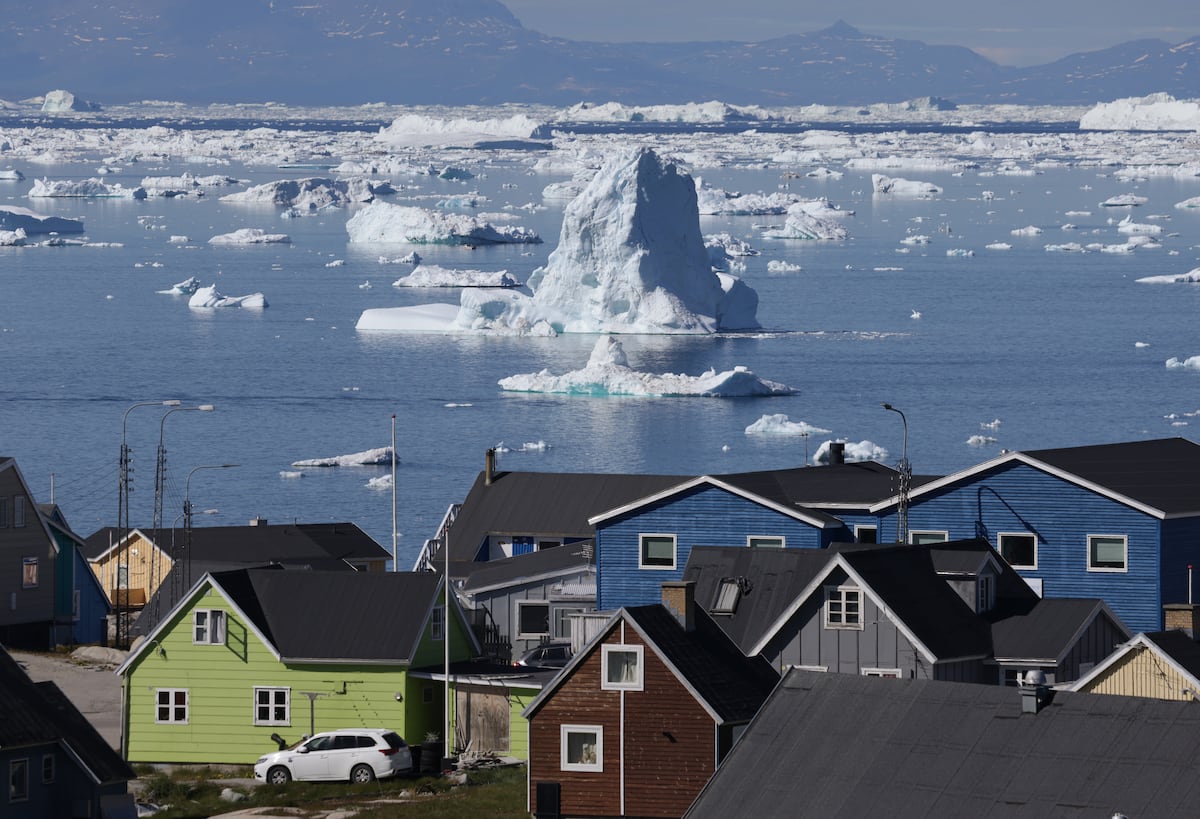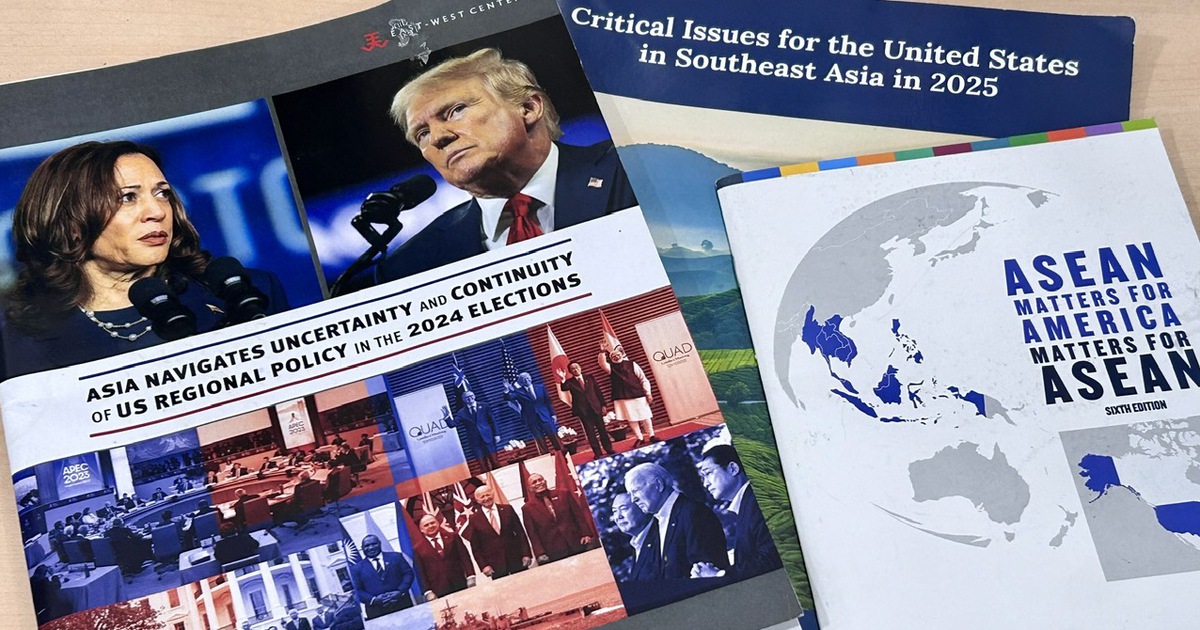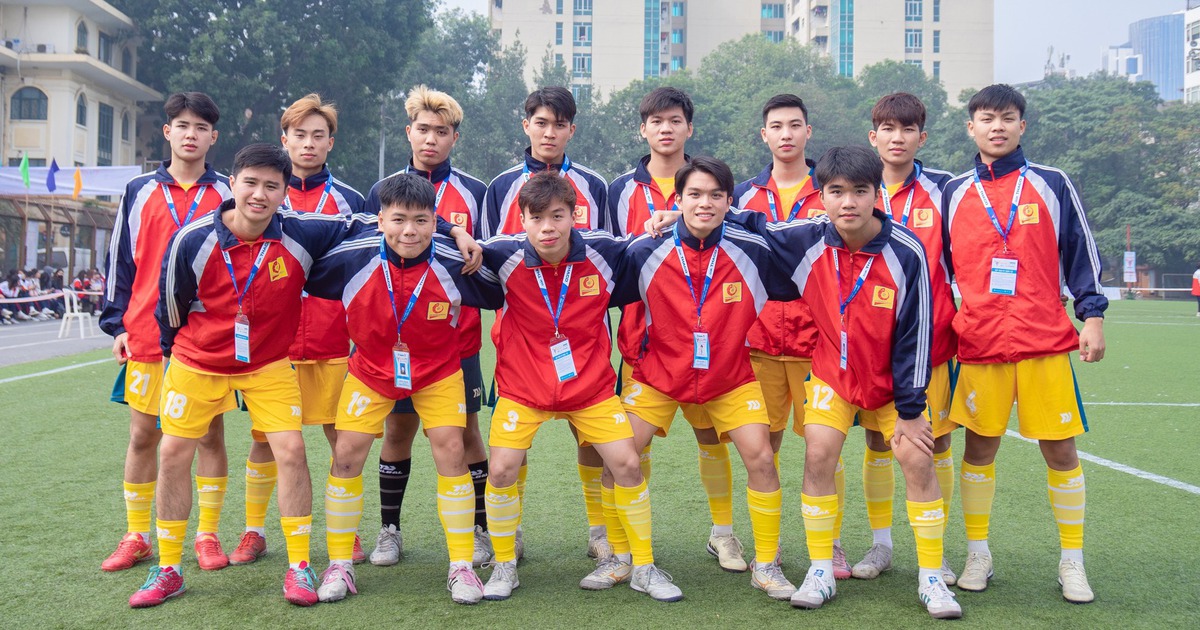The Secretary General of NATO, Mark Rutte, urged the allied countries this Tuesday to speculate less about what a hypothetical peace process between Ukraine and Russia could be like and to “do more”, especially increase military aid, so that kyiv arrive with a “strong” position to this potential dialogue with Moscow.
“More military aid and fewer discussions about what a peace process would be like (…) we have to put Ukraine in a position of strength for when those discussions come,” he concluded.
In the first of the two days of meeting of foreign ministers of the Alliance in Brussels, with the focus again on the war on its eastern flank, but with restless eyes also on the political changes in the west, after the victory of Donald Trump, the new head of NATO, has explained that, in his recent meeting in Florida with the American president-elect, he warned him that the security of his country also depends on Ukraine not being weakened. Because that would make the Russian president, Vladimir Putin, and his allies, China, Iran and now also North Korea, not feel emboldened and have “ideas” about other territories.
“When we reach an agreement on Ukraine, it has to be a good agreement, because what we cannot allow is that Kim Jong-un, Xi Jinping and anyone else who thinks it is a bad agreement start celebrating it, because that could give them ideas to others about what they can do,” Rutte warned. ”This is crucial for our defense, not only in Europe, but also in the United States and the Indo-Pacific and the Euro-Atlantic,” he added.
Everything is related, he stressed, and the main thing is that kyiv comes “strong” to a peace process, when the Ukrainians themselves decide that the time has come to negotiate, the Dutchman has stressed several times at a press conference in Brussels.
In this sense, Rutte has welcomed the announcements of increased military aid made in recent days by several countries, including Germany, whose chancellor, the social democrat Olaf Scholz, announced on Monday in kyiv that Berlin will deliver weapons to Ukraine this month for value of 650 million euros. Also the United States, whose Secretary of State, Antony Blinken, is participating in the Brussels meeting, announced on Monday a new delivery of military aid to kyiv for 725 million dollars (about 690 million euros). Sweden, Estonia, Lithuania and Norway have also announced new games, something that Rutte welcomed and encouraged to continue.
“This is excellent news (…) but we all have to do more, especially now,” Rutte declared. “The stronger our military support for Ukraine now, the stronger their hand will be at the negotiating table and the sooner we can put an end to Russian aggression in Ukraine once and for all,” he added.
Doubts around Trump
The new NATO meeting is held under the shadow of pessimism and uncertainty. On the one hand, doubts continue about what direction the Trump Administration will take when the president-elect takes office at the end of January. As a candidate, he assured that he would resolve the war “in 24 hours,” but allied countries, especially European ones, trust that the language will change now that he is preparing to return to the White House. Hence the insistence, Rutte explained, on making him see that the implications of the war go far beyond Ukraine and could affect Washington.
But doubts are also growing regarding the direction of the war itself in Ukraine, with a battlefield dominated at least at the moment by Russia and a Ukrainian president, Volodymyr Zelensky, who has begun to insistently warn that he needs the umbrella of NATO to have a strong position in future negotiations.
In an interview on Britain’s Sky News on Saturday, Zelensky said a ceasefire can be negotiated if the Atlantic Alliance accepts the regions of free Ukraine as part of NATO, with the prospect of recovering the rest of the territory by through diplomatic channels later. It is what some in the Alliance call the “German way”, in reference to the fact that when Germany joined NATO, in 1955, only the western part, the Federal Republic of Germany (FRG), did so and they had to wait several decades, until the fall of the Berlin Wall and the reunification with what until then had been the German Democratic Republic (GDR), under the Soviet orbit, so that all its territory would come under the umbrella of NATO that Zelensky also craves so much. But this possibility faces firm opposition for the moment from key countries such as the United States or even Germany, so discussions in this regard do not seem to be going anywhere at the moment. “There is no consensus at this time on this,” diplomatic sources acknowledge.
The two-day ministerial meeting at NATO headquarters opened with a meeting with the King of Jordan, Abdullah II. A sign, Rutte said, of the Alliance’s willingness to expand its ties in other regions of the world, especially towards its southern neighbors. Something especially pressing, he has indicated, given the growing influence of Russia and China in regions such as the African continent and the Middle East.
“We have to be active, we cannot have a situation in which the Chinese and Russians are involved in Africa and other regions and the West is not. We have to build bilateral relations and help when necessary, as we do with the Iraq mission,” he indicated. The plan to open a liaison office in Amman “soon” goes in the same direction, an issue that will be detailed in the Brussels meeting with the Jordanian monarch.

